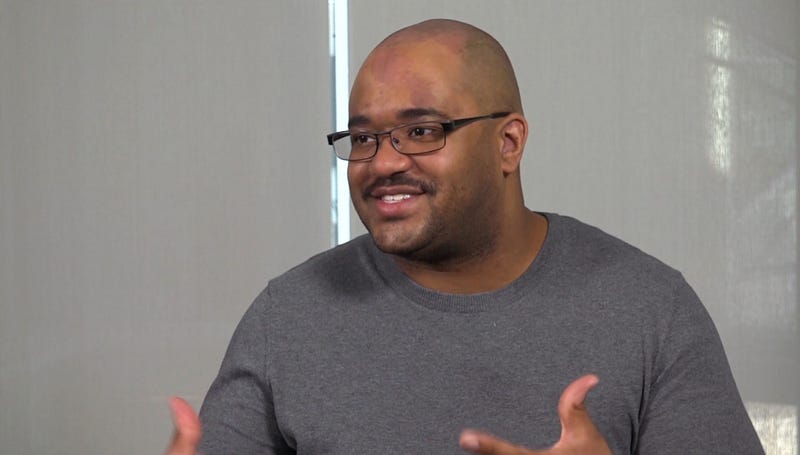Monroe Kennedy: Robotics for the Greater Good

A sci-fi dream has yet to materialize: Despite living in an age of quasi-self-driving cars and ubiquitous smartphones, robots in the home are more or less limited to autonomous vacuum cleaners.
Monroe Kennedy, a 2019 graduate of the doctoral program in Mechanical Engineering and Applied Mechanics (MEAM), wants to change all that. He’s now an assistant professor of Mechanical Engineering at Stanford University, where he’s working to help robots move through a space and handle objects on their own.
“Humans don’t really have to think about it much, but we always rely an unconscious set of rules about how we interact with our environments,” he says. “If you get yourself a cup of water, you first have to reach the sink, then manipulate the faucet in a particular set of ways. Robots need to have all that spelled out for them. In my lab, we look for new ways for them to build a model of the world and engage with it autonomously.”
Kennedy wasn’t always sure he’d wind up in robotics, though he comes from an analytic, scientific family. His father has a doctorate in physics, and his mother, who attended Penn as an undergrad, also has a master’s degree in the subject. Together, they instilled in him a love of science and engineering. It wasn’t until he was an undergraduate at the University of Maryland, Baltimore County (UMBC) that his passion for robotics emerged, however.
While at UMBC, Kennedy was accepted into the Meyerhoff Scholars Program, which awards underrepresented students internships with university faculty around the nation. The program allowed him to experience a number of engineering environments, from making efficient electric motors to testing the mechanical properties of Tylenol tablets. In 2011, he interned in the lab of Vijay Kumar, a professor in MEAM and robotics researcher at Penn who is now the Dean of Penn Engineering. The experience transformed his view of the field.
“I had always loved electronics and math, but Vijay helped me realize that robotics was this great intersection where those subjects make things happen in the real world,” Kennedy says. “Working with him was really a paradigm shift for me.”
After that experience, Kennedy returned to Penn on a GEM fellowship and a National Science Foundation graduate fellowship to earn his doctoral degree as a member of Kumar’s lab. He says the move helped hone his current research skills.
“Vijay challenged everyone he worked with to think about what research really means. He helped us realize that it’s not just confined to asking specific questions, it’s about critical thinking and addressing real-world problems. That was his mantra, and one I’ve adopted as well,” Kennedy says.
Today, Kennedy tries to instill that mode of thinking into his students at Stanford. In the field of assistive robotics and manipulation, there are plenty of ways to get bogged down in tiny details, but he constantly reminds students of the bigger picture. In the end, he says, the ultimate goal of robotics is to improve the lives of everyday people.
“Students can certainly do research without knowing the 10,000-foot view,” he says. “But it’s an extremely important motivator to know that their work can help people in a tangible way. That’s why the questions we ask in my lab are motivated by real-world problems where we can contribute to actual good by working to solve them.”
